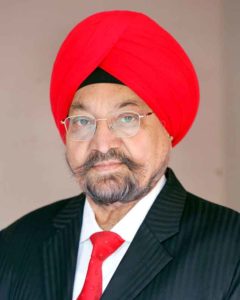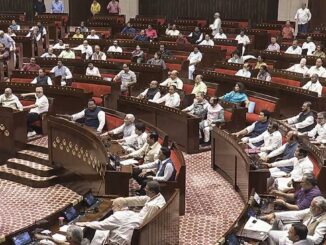
On this 4th of July, as the United States celebrates its 248th Independence Day, the nation finds itself at a crossroads, faced with an uncertain political future. The recent presidential debate highlighted the stark inadequacies of both candidates vying for the highest office in the land. One candidate struggled to articulate his points clearly and effectively, leaving many to question his capability to lead. The other candidate, in an attempt to evade direct questions, digressed from the issues at hand and seemed more intent on hoodwinking the American people rather than providing substantive answers.
This situation has left Americans with a profound dilemma: which of these two seemingly incompetent candidates should they entrust with the future of their country? The committed cadres of both major parties are unlikely to shift their loyalties, leaving the decision largely in the hands of independent voters, who traditionally play a decisive role in such closely contested elections.
According to Pew Research, about two-thirds of registered voters identify with a political party, with the electorate roughly split between Republicans (32%) and Democrats (33%). The remaining third identify as independents or something else, though most of these voters lean toward one of the two major parties. This significant proportion of independents is poised to determine the outcome of the election, given the nearly equal split among the committed partisans.
President Biden’s performance in the first preferential debate was widely seen as dismal and disappointing. This poor showing is likely to alienate many independent voters, who may disapprove of Biden’s capabilities. However, this disapproval does not automatically translate into support for the Republican candidate, Donald Trump. Many independents have not forgotten Trump’s unethical conduct during his previous tenure, and his extreme views on various issues remain unpalatable to a significant segment of the electorate, particularly liberal voters.
Faced with this choice, it appears that many independent voters might choose to abstain from voting altogether, finding neither candidate worthy of their support. This potential voter apathy presents a serious challenge to both campaigns, particularly for the Democrats if Biden remains their nominee.
Should Biden decide to withdraw from the race, the introduction of a new, well-known candidate could change the dynamics considerably. Independent voters, often driven by a desire for competent and ethical leadership, might be more inclined to support a fresh face, especially if they perceive the new candidate as a viable alternative to the status quo.
However, identifying a suitable alternative to Biden is fraught with complications. The current political landscape is such that no strong and recognizable second-in-command exists within the Democratic Party, despite there being a constitutionally designated vice president. Party leaders, while active in legislative circles, lack broad public recognition. Even popular Democratic governors, who have demonstrated excellent leadership within their states, remain relatively unknown on a national level.
Introducing a new candidate would require an immense effort to elevate their profile among the electorate, particularly the crucial independent voters. This endeavor would also necessitate substantial financial backing, an area where Trump already enjoys significant support from his promoters and financiers. For a new Democratic candidate, mobilizing sufficient campaign funds quickly would be a daunting task, presenting a clear disadvantage.
As we wait to see how these political dynamics unfold, there is speculation that Biden’s health could play a role in his potential withdrawal from the race. Should his physicians find a health issue that necessitates rest, it could provide Biden with an honorable exit, allowing the Democratic Party to present a new candidate without the stigma of a forced resignation.
Ultimately, the health of American democracy and the freedom of its people depend on a fair and competent election process. As we celebrate this 4th of July, it is crucial to reflect on the values that underpin our nation and hope for a resolution that upholds these principles. The coming months will be critical in determining the future direction of the United States, and it is imperative that we remain vigilant and engaged in the democratic process.
As we celebrate this Independence Day, let us not only commemorate the freedoms we cherish but also commit to ensuring that our political system remains robust and capable of serving the best interests of all Americans. Let us hope for leaders who embody the ideals of competence, integrity, and a genuine commitment to the well-being of the nation.
Happy 4th of July!




Be the first to comment